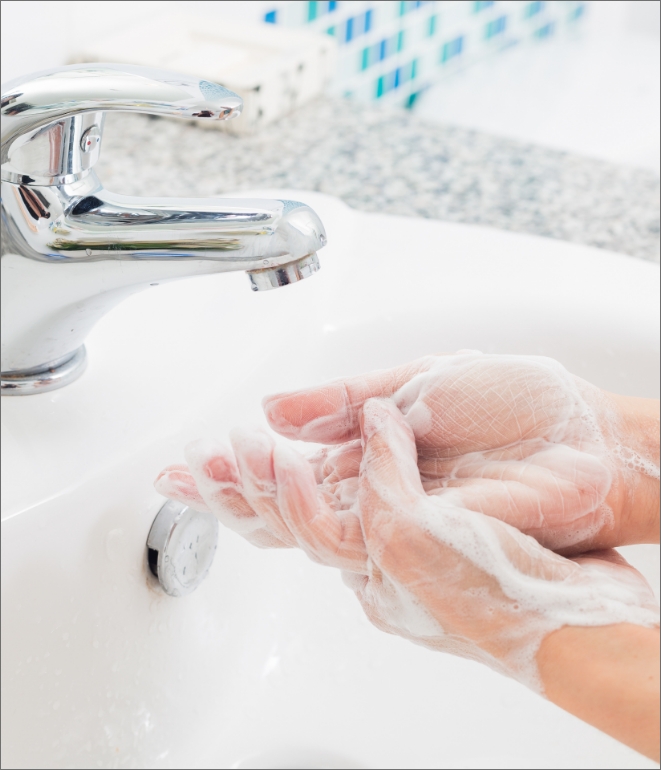What Does a Water Heater Tune Up Include?

Northeast Indiana homeowners rely on their water heaters every day for hot showers, clean dishes, and laundry. Yet, despite their constant use, water heaters often go overlooked until something goes wrong. One of the best ways to keep your unit running efficiently and avoid unexpected breakdowns is through regular water heater maintenance.
Booking an annual routine maintenance visit with T&T Plumbing & Heating, Inc. helps to make sure your water heater remains in good condition. But many homeowners wonder, what does a water heater tune up include?
We’ll explore the key activities involved in a typical water heater tune up, why it matters, and how it can save you time, stress, and money in the long run.
Why Tune Ups Are Important for Water Heaters
Water heaters are complex plumbing appliances. Over time, mineral deposits build up, parts can wear down, and energy efficiency can drop. Regular tune ups help catch small issues before they become costly repairs and verify the appliance is functioning properly, safely, and efficiently.
What Does a Water Heater Tune Up Include?
If you’ve ever wondered, “What does a water heater tune up include?,” the answer depends on a mix of inspection, testing, cleaning, and sometimes adjusting or replacing small components.
1. Full System Inspection
The tune up process always begins with a comprehensive inspection. A professional plumber will check:
- The water heater tank for signs of corrosion, rust, or leakage
- Water connections, drain valve, and shut-off valves for integrity and performance
- Ventilation (for gas units) to verify carbon monoxide is being safely vented
- Electrical components for wear, corrosion, or damage
- Gas lines for any potential gas leaks or pressure issues
This visual and mechanical check sets the foundation for the rest of the service.
2. Temperature and Pressure Relief Valve Testing
Next, the technician will test the temperature and pressure relief (T&P) valve, a critical safety device. This pressure valve prevents the tank from becoming dangerously over-pressurized.
During a professional water heater tune up, the plumber will:
- Manually activate the T&P valve to ensure it opens and closes properly
- Check for leaking around the valve or discharge pipe
- Make sure the water pressure coming into the unit is within the recommended range (typically 50–80 psi)
This quick test verifies that the valve is functioning correctly and capable of preventing dangerous pressure buildup inside the tank.
3. Water Heater Flush
If you have a traditional storage tank water heater, sediment buildup is one of the most common issues. Over time, minerals in your water—especially hard water—can settle at the bottom of the tank. This buildup causes:
- Reduced heating efficiency
- Inconsistent water temperatures
- Loud rumbling or popping noises
- Damage to the tank lining or heating elements
As part of a tune up, technicians typically flush the water heater to remove sediment buildup. This process involves:
- Turning off the water supply and power/gas to the unit
- Draining the tank using a hose and bucket
- Flushing it with fresh water to clear debris
Homeowners sometimes ask if they can do this step themselves. If you’re considering it, read our guide: Can I Flush a Water Heater Myself?
4. Anode Rod Inspection and Replacement
Inside your water heater tank is a sacrificial anode rod, which is a metal rod that attracts corrosive elements to protect the tank lining from rust. Over time, this rod deteriorates and needs to be replaced, usually every 3–5 years.
During a water heater maintenance tune up, the technician will remove and inspect the anode rod. If it’s significantly corroded or reduced in size, the anode rod will be replaced. This simple maintenance step can extend the life of your water heater by years.
5. Burner and Heating Element Cleaning
For gas water heaters, the burner assembly may collect soot or debris from the combustion process used to heat water. This can reduce the water heater’s efficiency or cause the burner to fail entirely. As part of the tune up, the technician will:
- Remove the burner cover
- Clean the burner with a brush or vacuum
- Check the flame for proper color (blue indicates optimal combustion)
For electric water heaters, the technician may inspect the heating elements for wear, corrosion, or scale buildup. Faulty heating elements may be cleaned or replaced during the visit if needed.
6. Venting and Draft Inspection (Gas Water Heaters)
If your water heater is gas-powered, ensuring proper exhaust venting is critical for both performance and safety. As part of the professional water heater tune up, your technician will:
- Check that the vent pipe is securely connected and sloped correctly
- Test for proper draft to confirm safe venting of combustion gases
- Look for signs of backdrafting or carbon monoxide leakage
Improper venting can be a serious hazard, which is why this step is never skipped.
7. Thermostat and Control Testing
Modern water heaters may have digital control panels, smart sensors, or traditional thermostats. A water heater tune up includes:
- Testing the thermostat for accuracy
- Verifying correct functioning of control panels or dip switches
- Checking any error codes (for newer units)
- Verify the thermostat setting—usually set at 120°F for energy efficiency and safety
An incorrect temperature setting can waste energy or increase the risk of scalding. This step helps ensure the unit is responding to temperature commands and cycling on/off correctly.
8. Final System Test
Once all maintenance steps are completed, the technician will restore power or gas to the system and run a full system test. This includes:
- Allowing the tank to refill (for flushed systems)
- Running hot water at multiple taps to test the heating response
- Checking for proper flame ignition (gas models)
- Watching for error codes or irregular behavior
Only after confirming everything is operating properly will the service be considered complete.
How Often Should You Schedule a Water Heater Tune Up?
For most households, an annual tune up is sufficient. However, homes with hard water, higher usage, or older systems may benefit from a tune up every 6 months.
Regular maintenance helps:
- Lower energy bills
- Reduce the risk of unexpected repairs
- Extend your water heater’s lifespan
- Maintain safe operation and hot water consistency
With regular water heater tune ups, you’ll have the confidence knowing your unit is in top shape for continued reliable performance.
Trust T&T Plumbing & Heating, Inc. for Professional Water Heater Tune Ups
At T&T Plumbing & Heating, Inc., we believe that proactive care is the key to long-lasting performance. Our skilled plumbers are experienced with all types of water heaters and will perform a complete tune up with care and professionalism. We even offer T&T Comfort Club plans that cover regular water heater maintenance and more!
When you’re ready for a professional tune up, give us a call. We’ll help keep your hot water flowing reliably, efficiently, and safely.
